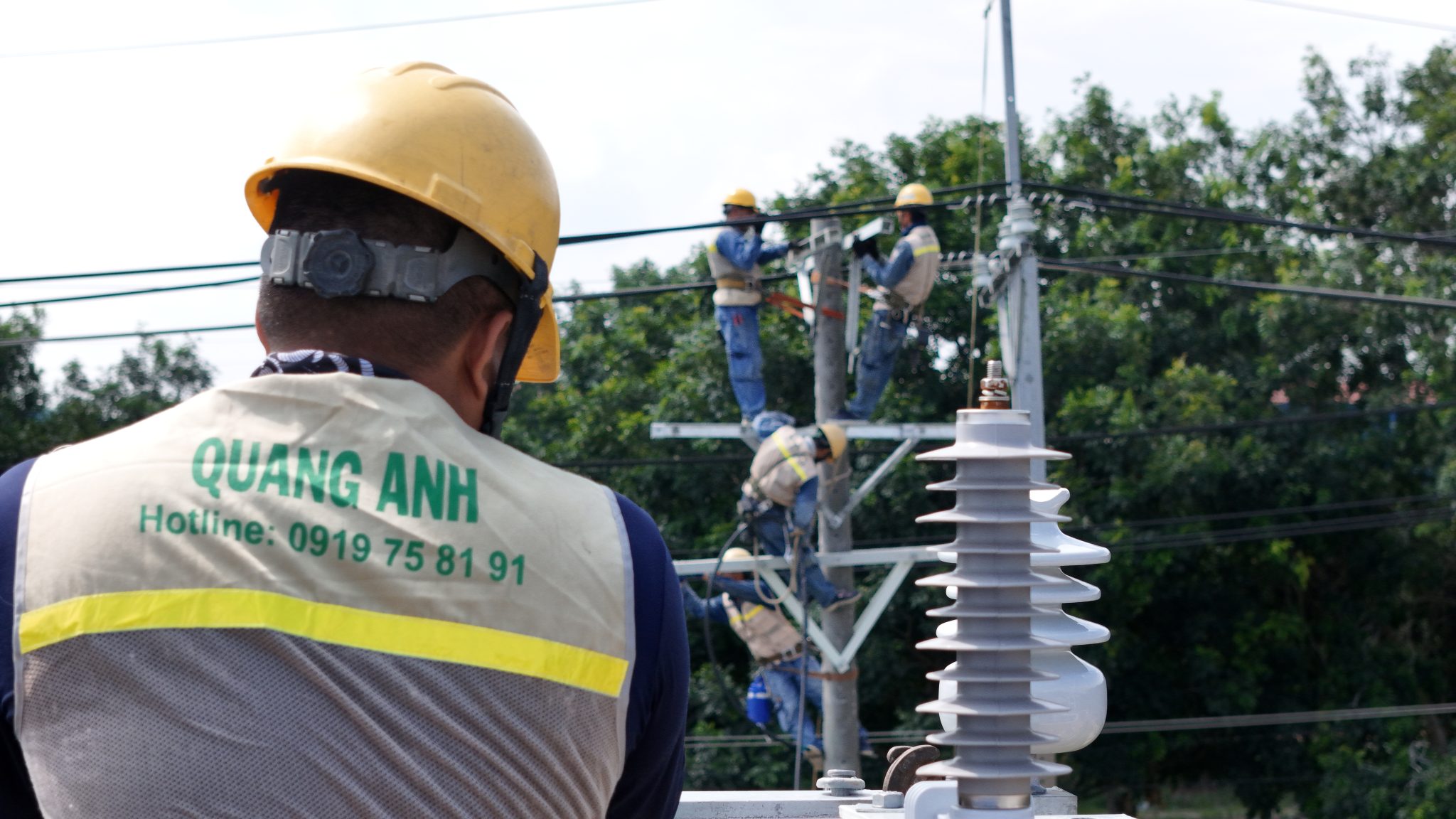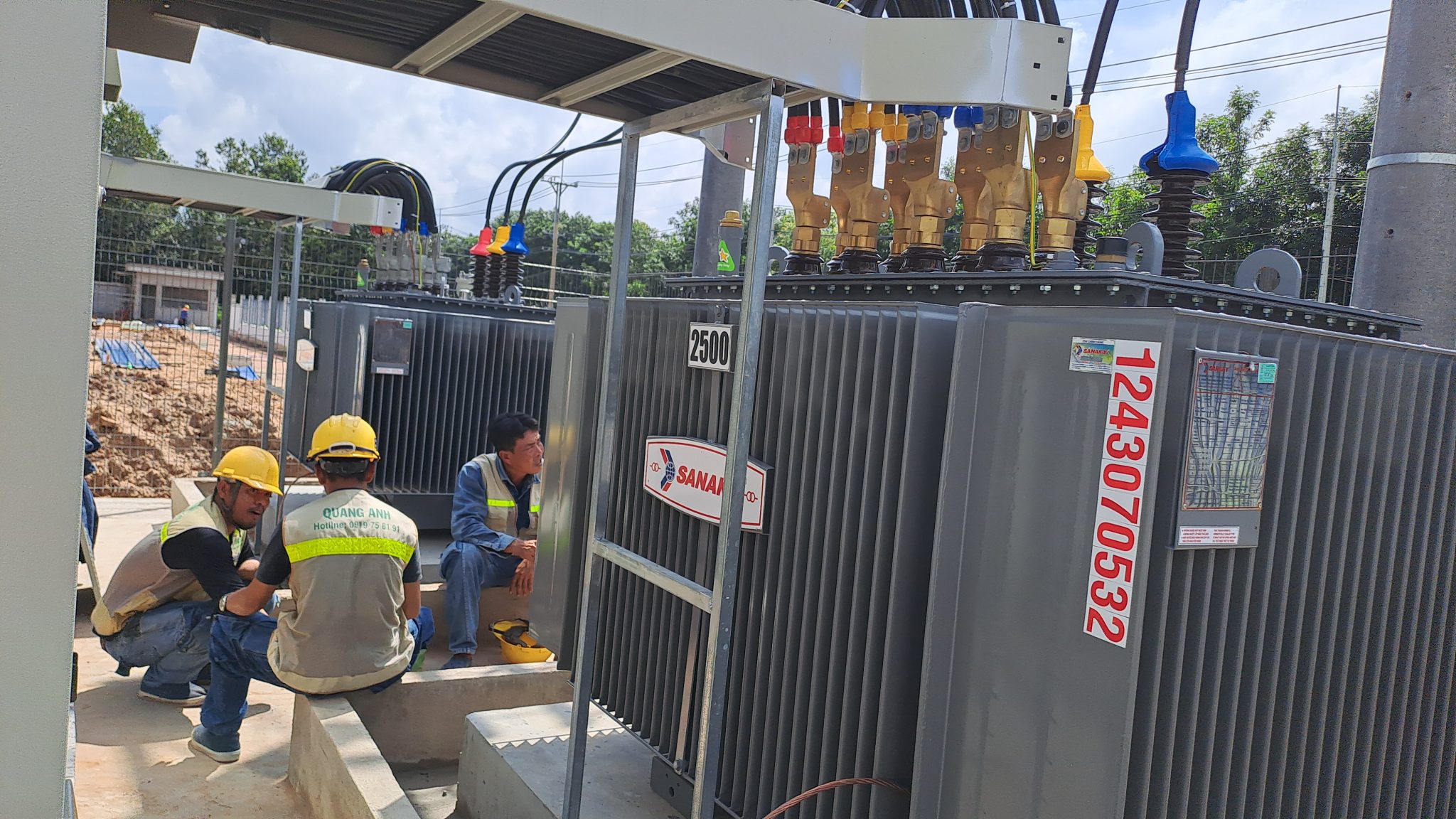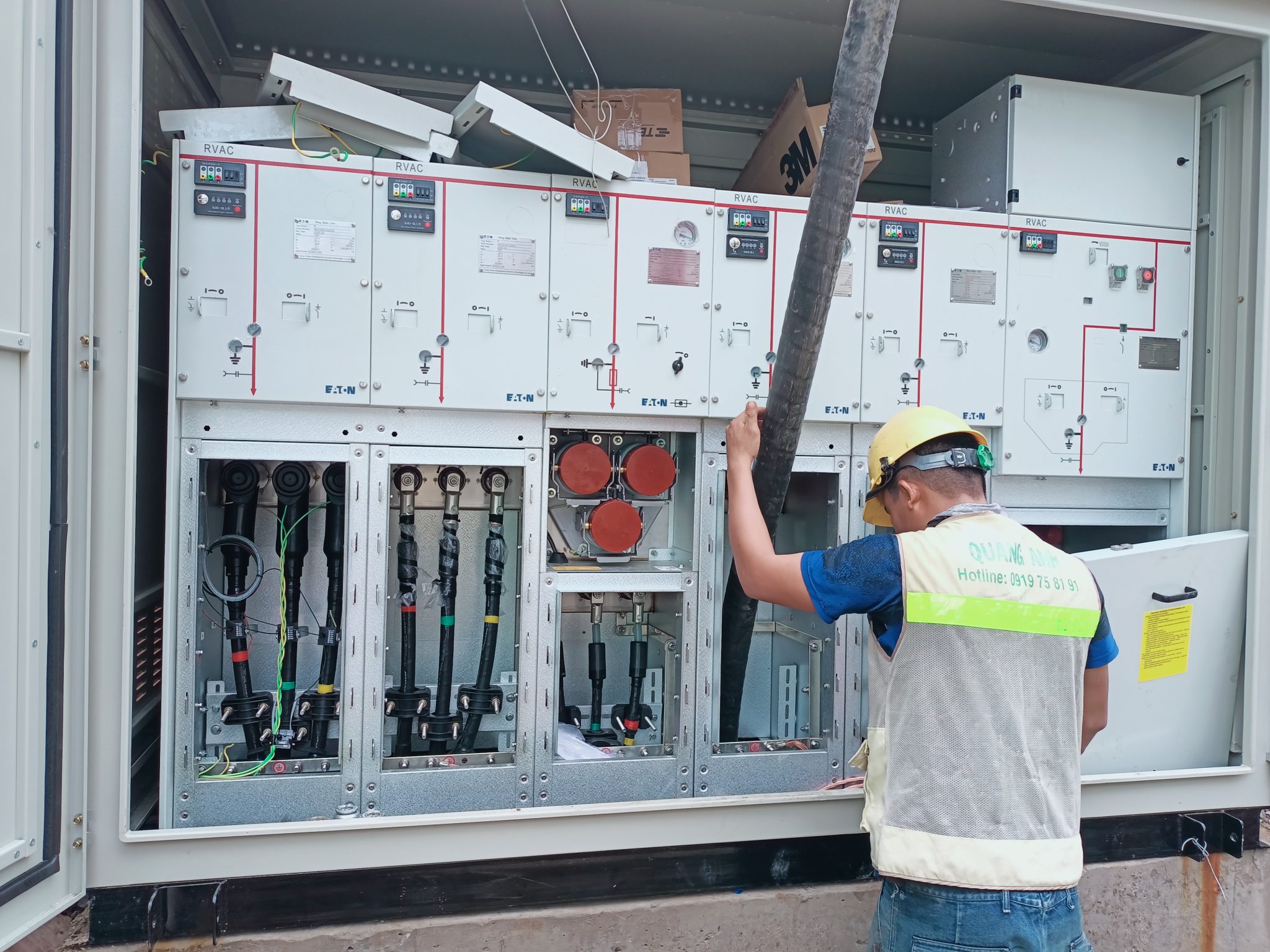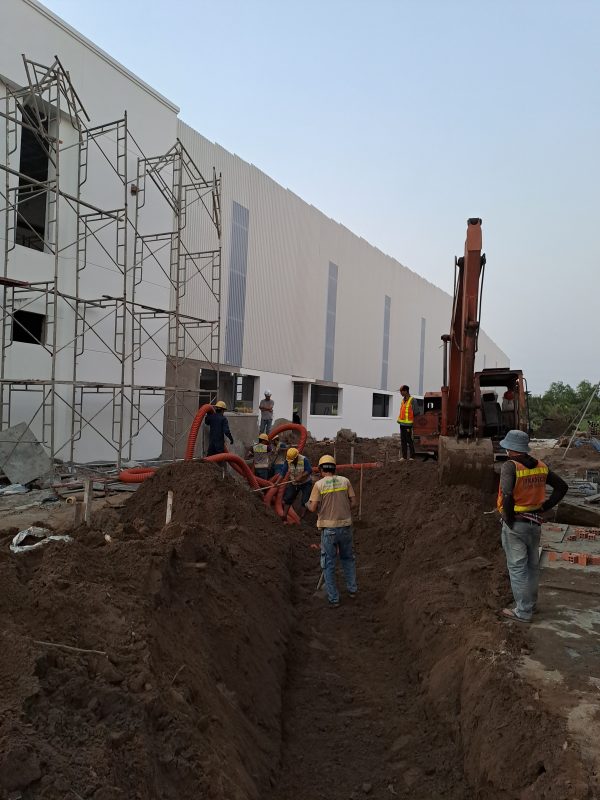The investment required for a standalone 150 kW electric vehicle (EV) charging station in Vietnam ranges from VND 676 million for a single fast-charging unit to over VND 2 billion for a complete station with multiple units and associated infrastructure.
Overview of Investment Costs for a 150kW EV Charging Station
Investing in a 150kW EV charging station in Vietnam encompasses several components. The cost of a single 150kW fast charger is approximately VND 676 million. Building a complete station with a transformer and auxiliary infrastructure can exceed VND 2 billion. Key costs include chargers, transformers, supporting infrastructure, and construction site expenses.
Investors must consider essential components such as transformer costs, charging units, and infrastructure expenses for a 150kW EV charging station in Vietnam.
A 150kW charging station requires a transformer with a capacity between 320 KVA and 400 KVA. The overall expenses for transformers and internal electrical systems, including cabling, typically range from several hundred million to over VND 1 billion, depending on the installation site. System setups with integrated routers, power supply cabinets, and cabling may cost between VND 150 and 250 million.
The charging equipment remains a major expense. A 150kW station typically features multiple DC fast-charging ports, with each port delivering 50 to 60kW. Equipped with advanced technology like displays and QR payment systems, a 100-120kW charging unit occupying 30-35m² can total approximately VND 1.8 billion for equipment and installation.
Construction site fees are also significant. Site rental costs range from VND 10 to 50 million per month depending on location. Infrastructure construction expenses, including charger foundations, power cabling, electrical cabinets, and shelters, must be carefully calculated to align with the charging station’s capacity.
Regarding operational costs, station managers need to budget for equipment maintenance and technical operations to ensure smooth and efficient functioning.
The payback period for EV charging infrastructure can be optimized with high utilisation rates. With an average electricity sale price ranging from VND 3,858 to 8,000 per kWh, stations can recover their costs within 2-3 years depending on customer output and operational efficiency.

Detailed Cost Components of the Charging Station
The cost structure of a 150kW EV charging station includes expenses for charging units, transformers, wiring systems, and site establishment. A 150kW fast-charging unit costs about VND 676 million, with the transformer and three-phase power supply costing between VND 800 million and 1 billion. Supporting infrastructure like routers, power supply cabinets, and connectivity systems require an additional VND 100 to 250 million.
A deeper analysis is necessary to understand each cost component contributing to the total investment value in building an EV charging station.
Hardware Costs
The hardware expenses for Level 2 charging stations range from USD 2,500 to 7,000, while DC Fast Chargers (Level 3) incur higher costs, from USD 20,000 to 50,000, depending on the type and capacity.
Installation Costs
Installation expenses are significantly affected by the complexity of the specific location. For Level 2 charging stations, installation costs range from USD 2,000 to 5,000. DC Fast Chargers require an installation budget between USD 10,000 and 50,000 or more, influenced by technical demands and existing infrastructure. Labor costs must be controlled yet ensure standards, typically ranging from USD 300 to 1,500. Elements such as electrical wiring, foundation construction, and shelters are subject to actual conditions with potential costs ranging from VND 10 to 100 million per project.
Software and Network Costs
Software and network fees play a crucial role in the station’s operation. Such costs include software leasing for station management, monitoring, payment processing, and user management. For Level 2 devices, software costs annually range from USD 200 to 500, while fees for DC Fast Chargers vary from USD 500 to 1,000 per year.
Maintenance and Repair Costs
Maintenance and repair expenses are essential to ensure continuous and efficient station operation. For Level 2 stations, these costs are approximately USD 500 to 1,000 annually. Due to the complex technology, DC Fast Chargers incur higher maintenance costs, from USD 1,000 to 3,000 each year.
Other Associated Costs
Additional expenses might arise such as site rental if not owning a location, and constructing auxiliary infrastructure like foundations and shelters, ranging from VND 15 to 50 million. Furthermore, energy management and optimisation might add USD 4,000 to 5,000 to mitigate energy losses and ensure the lowest operating expenses possible.
Overall upfront costs for Level 2 stations are estimated at USD 4,500 to 12,000, and for DC Fast Chargers from USD 30,000 to 100,000. Annual operating costs for Level 2 stations fall between USD 700 to 1,500, and for fast chargers, from USD 1,500 to 4,000.
EV Charging Costs significantly depend on the station type, site-specific electrical infrastructure, construction complexity, labor expenses, and software and network service fees.

Payback Timeframe for a 150kW Charging Station
Electricity sold at franchised stations in Vietnam typically costs 750 VND per kWh, while at public outlets, it’s about 3,858 VND per kWh. With substantial initial investment and lower charging prices, the payback period for a 150kW EV charging station generally exceeds 3 years, aligning with long-term business plans.
The payback timeframe for a 150kW charging station is a crucial consideration in any electric vehicle charging project. Typically, it ranges from 2 to 4 years, depending on factors like investment costs, monthly revenues, and business model.
- Investment costs for a 150kW station: A typical station requires initial investments exceeding VND 3 billion for 4 poles and 8 charging heads, directly impacting the payback period. A station may take up to 4 years to break even depending on scale and charging technology.
- Profits from a 150kW charging station: Stations can generate monthly revenues of about VND 60 million, with net profits around VND 20 million per month. Under favorable conditions, the payback period for a 150kW station could be shortened to 2 years.
- EV charging efficiency: Fast charging technology, like a 150kW station, not only enhances service speed but also boosts payback efficiency by up to 20% compared to conventional chargers, thanks to high efficiency and reduced vehicle idle time.
- Franchised charging model: Operating under a franchise model and running for 10-12 hours daily, investors can expect to recoup their investment within 2 years.
Investors need to thoroughly evaluate relevant aspects, including costs, revenues, and technology, to ensure effective investment strategies in the electric vehicle charging sector, optimizing the payback period for a 150kW charging station.

Investing in a 150kW EV charging station is a long-term strategy requiring careful consideration of technical aspects, cost, and payback potential. Despite the considerable investment required, the benefits to infrastructure investment are undeniable amidst the growing popularity of electric vehicles.
Contact QuangAnhcons at +84 9 1975 8191 for detailed consultation on building and investing in a 150kW EV charging station.
QuangAnhcons offers consultancy and implementation services for constructing 150kW EV charging stations, committed to technical excellence and timing. We understand the infrastructure and cost requirements, ensuring your project is efficiently and sustainably executed.
[contact-form-7 id="7239967" title="Contact form 1"]


Related Posts
Tay Ninh Solar Power Planning: Technical Framework, Grid Interconnection, and Rollout Roadmap
Technical overview of solar planning in Tay Ninh: irradiation, grid capacity, permitting, design, operations, and [...]
Dec
Binh Duong Solar Planning: Regulatory Framework, Grid Interconnection, and an Implementation Roadmap for Factories and Industrial Parks
An overview of Binh Duong solar planning: legal framework, interconnection, design, risk management, and an [...]
Dec
Solar Farm Repair: O&M Workflow, IV Curve Diagnostics, Thermography, Inverter Service and Utility-Scale Safety
A utility-scale solar farm repair plan centered on O&M, IV curves, thermal imaging, inverter service, [...]
Dec
Dong Nai Solar Power Plan 2023–2025: Tri An 1,029 MW, Grid Upgrades and the DPPA Pathway
A complete look at Dong Nai’s solar power plan: Tri An 1,029 MW, irradiation potential, [...]
Nov
Quang Ngai Solar Power Plan 2024–2030: Legal Framework, Irradiance Potential, and Development Roadmap
A complete look at Quang Ngai’s solar power plan: capacity targets, irradiance (PVout), development zones, [...]
Nov
Solar Damage Assessment Services: On-Site Procedures, EL/IV/Thermography Testing & Compliance with Standards
Discover IEC/UL/NEC standard solar damage assessment processes: on-site evaluation, EL and IV curve testing, thermal [...]
Nov
Comprehensive Package Estimate for a 1800MVA 500kV Substation: Scope, Configuration 3x600MVA, Standards and Timeline Management
An overview of the 1800MVA 500kV substation estimate: construction scope, configuration 3x600MVA, GIS/AIS, SCADA, standards, [...]
Nov
Factory Electrical Systems: Comprehensive Design and Implementation Guide
Discover the detailed and safe process of factory electrical systems design and implementation. [...]
Oct
Blueprints Required for Factory Construction Permits
Discover the necessary blueprints in factory construction permit applications, from floor plans to electrical and [...]
Oct
What Are the Requirements for a Factory Construction Permit? A Comprehensive Guide
Explore the documentation and steps needed to secure a factory construction permit for streamlined project [...]
Oct
Factory Construction Permit Procedures in Vietnam: Essential Guidelines and Documents
Learn the procedures for securing a factory construction permit in Vietnam, focusing on document preparation [...]
Oct
Key Steps in the Factory Construction Process
Discover the essential steps and requirements for building factories. [...]
Oct
Comprehensive Electrical Substation Solutions by Quanganhcons
Discover the cutting-edge electrical substation solutions offered by Quanganhcons for industrial applications. [...]
Oct
Investment Costs for a 1MWp Solar Power System and Influencing Factors
Explore the investment costs for a 1MWp solar power system in Vietnam and the influencing [...]
Sep
QuangAnhcons: Elevating Wind Energy Solutions
Explore QuangAnhcons' leadership in wind energy and renewable solutions in Vietnam. [...]
Sep
Electrical Contractor Strategies at Becamex Industrial Park
Discover the strategic advancements and partnerships of the electrical contractor at Becamex Industrial Park. [...]
Sep
Investment Insights for 1MW Wind Energy in Vietnam: Costs and Opportunities
Discover the detailed analysis of costs and opportunities for investing in 1MW wind energy projects [...]
Sep
Advanced Electrical Installation Solutions by QuangAnhcons
Explore advanced electrical installation solutions and modern technology with QuangAnhcons. [...]
Sep
Enhancing Industrial Electrical Services with Quanganhcons
Discover Quanganhcons' expertise in industrial electrical services, offering efficient and sustainable power systems. [...]
Sep
Comprehensive MEP Solutions by QuangAnhcons: From Design to Maintenance Excellence
Discover optimal MEP solutions with QuangAnhcons, dedicated to excellence from design through maintenance. [...]
Sep